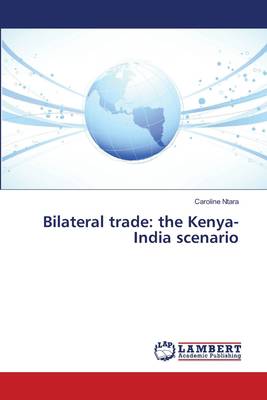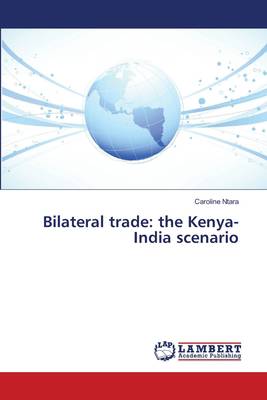
- Afhalen na 1 uur in een winkel met voorraad
- Gratis thuislevering in België vanaf € 30
- Ruim aanbod met 7 miljoen producten
- Afhalen na 1 uur in een winkel met voorraad
- Gratis thuislevering in België vanaf € 30
- Ruim aanbod met 7 miljoen producten
Zoeken
Bilateral trade: the Kenya-India scenario
the Kenya-India scenario
Caroline Ntara
Paperback | Engels
€ 48,95
+ 97 punten
Omschrijving
International trade is critical in the economic growth of nations. Countries across the globe depend on each other to access goods or services. This benefits their citizens and trickles down to the economy. The global market enables nations to trade in a bid to meet their needs. Bilateral trade narrows down to trade between two countries. This trade can be beneficial if proper trade policies are laid down. However,bilateral trade may end up benefiting one country more than the other.The issue of trade imbalance is evident in the Kenya-India trade scenario.This book seeks to explain the factors influencing bilateral trade using the Kenya-India trade scenario. An understanding of some of the factors that cause trade imbalance should help Kenya and other nations make sound decisions when engaging in international trade.Consequently,this is an indication that it is important for a nation to know its trade potential. Further,policy recommendations and possible solutions are highlighted.
Specificaties
Betrokkenen
- Auteur(s):
- Uitgeverij:
Inhoud
- Aantal bladzijden:
- 52
- Taal:
- Engels
Eigenschappen
- Productcode (EAN):
- 9783659473470
- Verschijningsdatum:
- 6/11/2013
- Uitvoering:
- Paperback
- Afmetingen:
- 150 mm x 220 mm
- Gewicht:
- 91 g

Alleen bij Standaard Boekhandel
+ 97 punten op je klantenkaart van Standaard Boekhandel
Beoordelingen
We publiceren alleen reviews die voldoen aan de voorwaarden voor reviews. Bekijk onze voorwaarden voor reviews.







